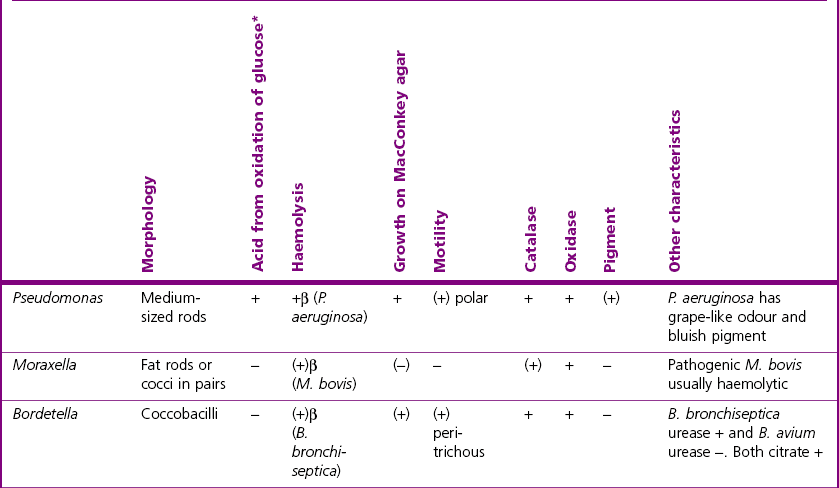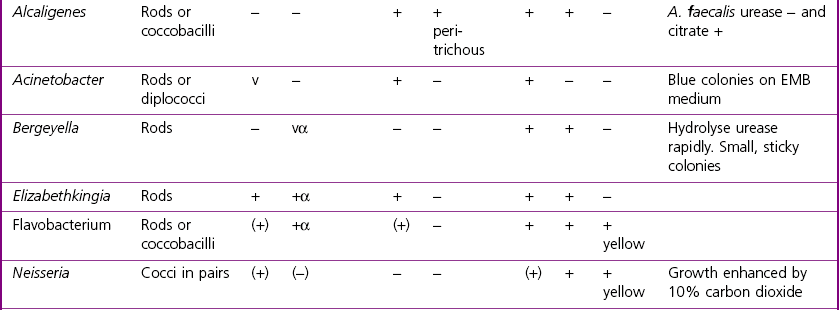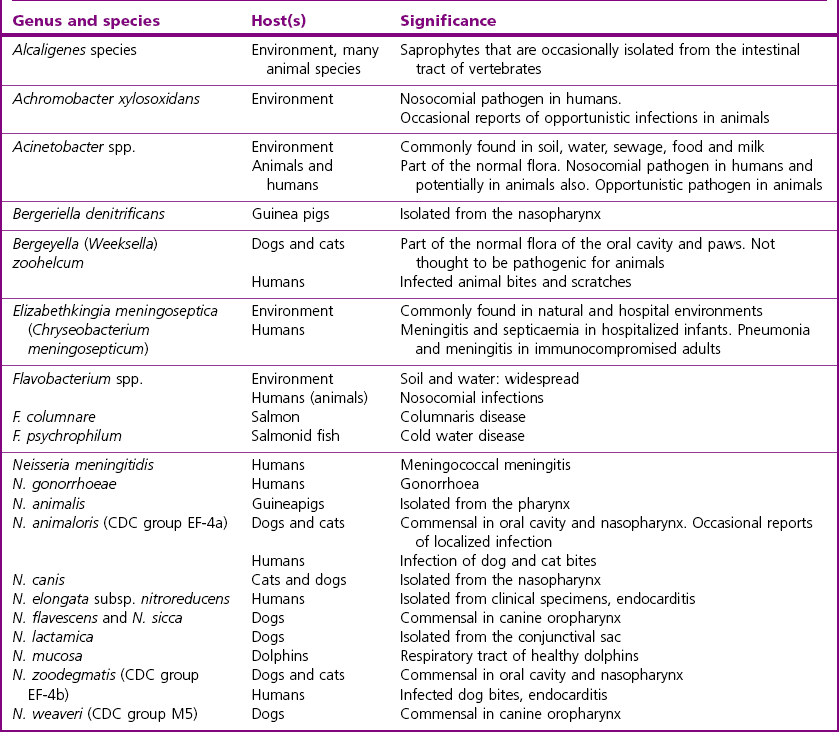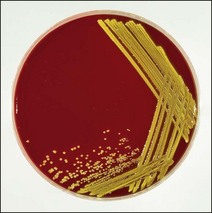Chapter 30 The glucose non-fermenting, Gram-negative bacteria use glucose oxidatively or not at all. The genera Pseudomonas, Bordetella and Moraxella, which include significant veterinary pathogens, belong to this category and these are described in other chapters. Other genera belonging to the glucose non-fermenting bacteria which are of minor veterinary importance include Alcaligenes, Acinetobacter, Achromobacter, Flavobacterium, Chryseobacterium, Neisseria, and some other species. Some of these organisms, such as Acinetobacter species are opportunistic pathogens of immunocompromised patients in hospitals. They are frequently environmental organisms which are intrinsically resistant to many antimicrobial agents and may also acquire resistance to further agents. Strains of Acinetobacter species have now emerged in human medicine which are resistant to all commercially available antibiotics (Munoz-Price & Weinstein 2008). Pathogens belonging to this group of glucose non-fermenting, Gram-negative bacteria have also been documented as causing post-surgical wound infections in veterinary hospitals (Weese 2008). These bacteria are described in this chapter and their significance is summarized in Table 30.1. These glucose non-fermenting bacteria are fairly commonly isolated from clinical specimens incubated aerobically. Most grow at 37°C although this may be above their optimum temperature. Pigment is produced by some of these bacteria, including Flavobacterium species (Fig. 30.1). A presumptive identification can be made on the basis of a few comparatively simple tests. A general comparison of the genera is given in Table 30.2 and some characteristics of the species commonly isolated from clinical materials are shown in Table 30.3. The tests are as follows: Table 30.2 Comparison of the characteristics of Gram-negative, glucose non-fermenting bacteria *O-F test, + = oxidative, and − = unreactive. R = resistant and S = susceptible
Glucose non-fermenting, Gram-negative bacteria
Laboratory Diagnosis
Isolation
Identification


![]()
Stay updated, free articles. Join our Telegram channel

Full access? Get Clinical Tree


Glucose non-fermenting, Gram-negative bacteria
Only gold members can continue reading. Log In or Register to continue


